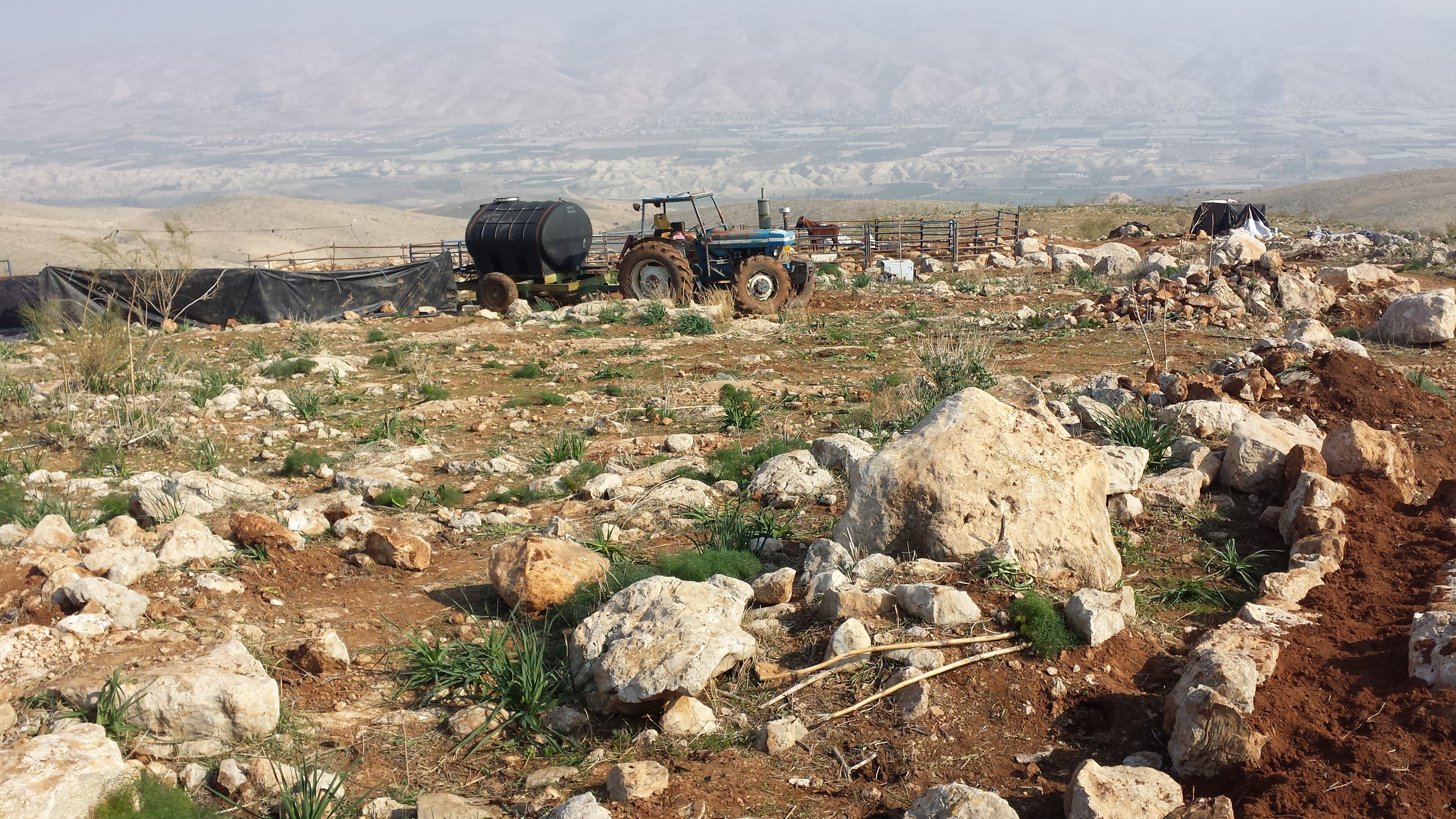Palestinian Jordan Valley: the new colonist outpost


A Jew gets up one morning and founds his own cattle ranch in a nature reserve
We visited the outpost that was established on January 5, 2017 near the army base in the Umm Zuka nature reserve. We wished to familiarize ourselves with the place and have a close look at the developments there. In the meantime we heard complaints of shepherds living in the area (residents of the hamlets of Kahlet Makhoul and Samra) about harassments and especially intimidation of the shepherds since the outpost owns a large flock of cattle and they keep the Bedouin shepherds at a distance. Since the colonists are armed when they go out to pasture and in large groups (we were told of 7 at a time), a Bedouin shepherd on his own runs away from them. On Saturday, January 14, 2017, they came on their mini-tractor and attacked a resident of En Al Beda who came to plow his own land near the nature reserve and he had to leave the place. The A. family in Samra said that the colonists came all the way to their encampment while chasing the shepherd and threatened him with their weapons. The women’s outcry made them leave. Until the erection of this outpost the region had been calm.
Before we entered the outpost, we were approached by a vehicle with two passengers who said they were from the regional council. They said this was not a colony. “Just one person who has come to graze his flock and lives here with his wife.”
On the road up through the nature reserve we saw a boy with long sidecurls. HE came and vanished into one of the structures there. We saw a large water container, a generator, a large shed fenced with stones (probably the kitchen), two residential structures (rather small caravans covered with plastic sheets), and a cattle corral (the shed will be erected soon enough). The Bedouin shepherds said he has 50-100 heads of cattle, and there were also a horse and a tractor on site.
The cattle owner appeared, a man of about 30. He said that he lived in Maskiyot colony previously and moved here because he had not enough grazing area for his cattle. The Palestinians are forbidden to enter the reserve with their cattle but he has extra privileges. He says he founded his outpost in coordination with the Nature Preservation Authority and that his cattle help prevent fires in the reserve. Since he lives next to the army base, clearly not only the regional council but also the army are aware of his presence.
We did not ask what the boy (sidecurls) was doing there, who goes out with the cattle to pasture when the man stays home. The Bedouin shepherds told us they have seen 7 boys with the cattle. When we asked him whether he had plans to expand the outpost he said, no. This is a one-man ranch, for the time being.
We also visited with families in Samra, Kahlet Makhoul, En Al Hilwa and Faresiya. At one of the encampments we met Hanna Safran from Haifa who regularly visits several families and helps them in various ways. With her came another two women from Haifa, active together with the Dharma organization (Google “Dharma social involvement” to obtain information about them). Lately they have been initiating activities in the Palestinian Jordan Valley in collaboration with Taayush. It was good to hear that more and more people are showing interest in the goings-on here.
At Tapuach-Zaatara Junction Checkpoint we saw no special activity.
The Male Efrayim and Hamra Checkpoints are open.
In the morning at the entrance junction to Majdal Bani Fadel (opposite the entrance to Qusra) we saw an armed soldier stopping Palestinian cars. We did not stop.
